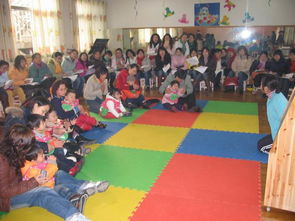早教英文怎么说
The Importance of Early Childhood Education
Early childhood education, also known as early childhood care and education (ECCE), refers to the education of children from birth through age 8. It is widely recognized as a crucial stage in a child's development and sets the foundation for lifelong learning and success. Here are some reasons why early childhood education is important:
During the early years of life, the brain undergoes rapid development and is highly sensitive to environmental influences. Highquality early childhood education programs support cognitive development, language acquisition, and socialemotional skills, laying the groundwork for future academic achievement.
Early childhood education provides young children with opportunities to interact with peers and develop important social skills such as cooperation, empathy, and communication. These experiences help children build positive relationships and learn how to navigate social interactions.
Children who participate in early childhood education programs are more likely to be prepared for formal schooling. They often exhibit better language skills, cognitive abilities, and selfregulation, which contribute to a smoother transition to kindergarten and later grades.
Research has shown that children who receive a highquality early childhood education are more likely to graduate from high school, pursue higher education, and secure stable employment in the future. Investing in early childhood education yields longterm benefits for individuals and society as a whole.

Access to quality early childhood education can help reduce disparities among children from different socioeconomic backgrounds. By providing all children with a strong educational foundation, early childhood programs contribute to creating a more equitable society.
Early childhood education programs often involve parents and caregivers in their child's learning, fostering positive parentchild relationships and supporting families in their role as the child's first teachers. Parental involvement is key to the success of early childhood education initiatives.
In conclusion, early childhood education plays a vital role in shaping the future success and wellbeing of children. By investing in highquality programs that support children's development in the early years, we can promote positive outcomes and ensure a brighter future for generations to come.











